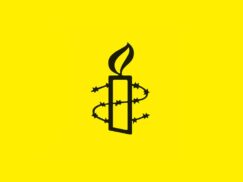UPDATES TO KAFALA
The definitive place to get the latest updates on Kafala.
The Kafala system in Lebanon delivers foreign workers to their guarantors. Those affected have to endure hunger, beatings and humiliations. The economic crisis could change that.
In response to the killing of George Floyd in Minneapolis, people around the world have taken to the streets in huge numbers in solidarity with protesters in America. The Black Lives Matter movement is gaining momentum and the rage has gone global.
They've been abandoned there by their employers, who say they can no longer afford to pay their salaries.
This cross-sectarian, interest-based mobilization may be the best method to dismantle a corrupt, sectarian-based ‘spoils system’ and achieve social justice. This should begin with ensuring that the most marginalized workers are empowered, including by abolishing the abusive kafala system.
"Lebanon: Abandoned migrant domestic workers must be protected"
Le Liban, pays de six millions d’habitants, comptait en 2018 plus de 186 000 travailleuses domestiques. Ces femmes, issues de l’immigration africaine et asiatique, subissent de nombreux abus.
We call on the Lebanese authorities to end the kafala system and extend labour protections to migrant domestic workers
BEIRUT (AP) — Long before the pandemic struck, they lived and worked in conditions that rights groups called exploitative — low wages, long hours, no labor law protections.
As a photographer currently in Lebanon, I was warned about the disastrous consequences that both the economic crisis and the Covid-19 outbreak had on domestic workers.
"This pandemic has both exposed decades of systematic racial discrimination and deepened the suffering of migrant workers who have long faced exploitation and abuse under the Gulf states’ various kafala systems," says Hiba Zayadi, Human Rights Watch's Gulf researcher.











